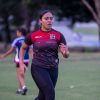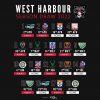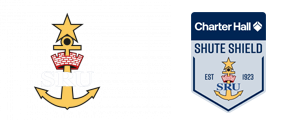
It’s every young rugby enthusiasts ambition to represent the Wallabies, however very rarely does this dream come to fruition.
Luckily for Mick Ellem his dream was made a reality, albeit in the most unusual of rugby circumstances.
Ellem converted from the 13-man game after he and his mates decided to try rugby union for Ashfield Juniors in 1967.
A few years later, Ellem was well entrenched in Club Rugby culture and perfecting his craft at fullback for Western Suburb’s Fourth Grade side.
“The Club has always been socially strong”, said Ellem.
“I remember everyone would be there early, usually to play touch footy or just catch up before we had to start training.
Before I knew it, I was close mates with all of them, and I’ve held those friendships right through to today.”
After only a few seasons in Grade rugby, Ellem was influential in Western Suburb’s run to a First Grade Grand Final against Randwick in 1973.
After losing the first few games of the season, Ellem’s side remained unbeaten until the narrow 15-12 defeat to a notoriously strong Randwick outfit.
“Behind representing the Wallabies, that Grand Final is the career highlight”, he said.
“From where we were at the beginning of the season and to push that Randwick team so far, it cannot be overlooked.”
It wasn’t long before Ellem’s talents were recognised for higher honours, as he was chosen to represent New South Wales against Wellington in July 1975.
When Fiji toured Australia the following year, Ellem was named on the bench for a star-studded New South Wales side which included Wallabies fullback Jim Hindmarsh.
After Hindmarsh went down with an early injury, Ellem came on to score 10 points and was dominant in the teams 37-6 victory.
“At every level I was playing with better athletes,” he said.
“As I went higher in representative rugby, I had to worry less about what my teammates were doing and focus more on my role.
Although the game was faster, it was also easier because everyone was good at their job.”
After a strong showing for New South Wales, Ellem was thrust into selection contention for the three Test series against Fiji.
“I walked into work on the Monday and I was told the ARU [Rugby Australia] had been trying to get in contact with me,” he said.
“I rang them straight back, and next thing I knew I was out the door at work and on a flight to join the Australian squad in Queensland.”
Ellem remained in the reserves for the 2nd Test but made his Wallaby debut off the bench in the final match of the series in Sydney.
Shortly after coming on the field for inside centre Geoff Shaw, the match took an unlikely turn and Ellem’s debut was very nearly cut short.
“There was a bit of a bust up just after I came on and the Fijian skipper was sent off,” Ellem recalls.
“The Fijian team were complaining to the ref and before I knew it, they had walked off the field and refused to come back on.
I remember thinking to myself, don’t tell me I’m coming on for my debut and the match is being abandoned at half-time.”
Eventually, the Fiji side returned to the field and Australia went on to win the match 27-19.
The controversial Test match remains Ellem’s proudest moment in an illustrious career.
“Obviously I wanted to play in all these representative teams,” he said.
“But I never, at any stage thought that I was going to play for Australia.
I just loved playing rugby and luckily I was good enough to make that team.”
Ellem went on to be further selected for Sydney and New South Wales in tours of Japan, Canada, the United Kingdom and Russia.
His final representative match came in 1978, when Sydney edged Five Nations and Grand Slam champions Wales 18-16 at the Sydney Sports Ground.
Mick Ellem returned to Western Suburbs after a short stint at Manly ended in 1982.
When his playing career concluded in 1986, Ellem moved into a coaching role for the Club which continued intermittingly over the following three decades.
The 67-year-old credits much of his success and fondest footballing memories to Western Suburbs.
“I enjoyed giving back to a game and the Club which had given me so much,” he said.
“I became more confident in my early years, and that allowed me to play better rugby and compete with more aggression.
The Club taught me how to play and train hard, I will never forget that.”
Declan Armstrong
Media and Communications Officer | West Harbour Pirates Rugby Club








